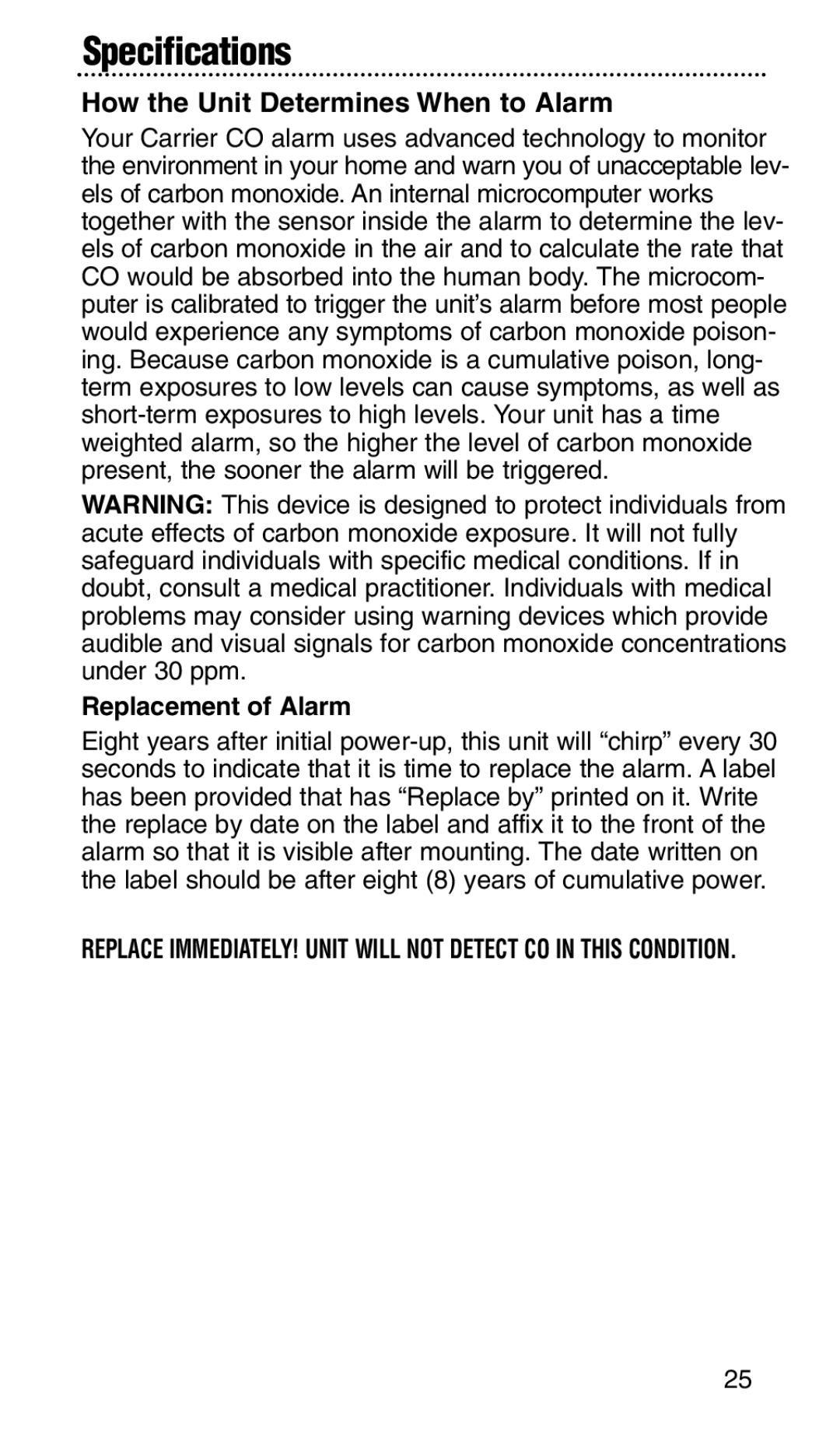Specifications
How the Unit Determines When to Alarm
Your Carrier CO alarm uses advanced technology to monitor the environment in your home and warn you of unacceptable lev- els of carbon monoxide. An internal microcomputer works together with the sensor inside the alarm to determine the lev- els of carbon monoxide in the air and to calculate the rate that CO would be absorbed into the human body. The microcom- puter is calibrated to trigger the unit’s alarm before most people would experience any symptoms of carbon monoxide poison- ing. Because carbon monoxide is a cumulative poison, long- term exposures to low levels can cause symptoms, as well as
WARNING: This device is designed to protect individuals from acute effects of carbon monoxide exposure. It will not fully safeguard individuals with specific medical conditions. If in doubt, consult a medical practitioner. Individuals with medical problems may consider using warning devices which provide audible and visual signals for carbon monoxide concentrations under 30 ppm.
Replacement of Alarm
Eight years after initial
REPLACE IMMEDIATELY! UNIT WILL NOT DETECT CO IN THIS CONDITION.
25
